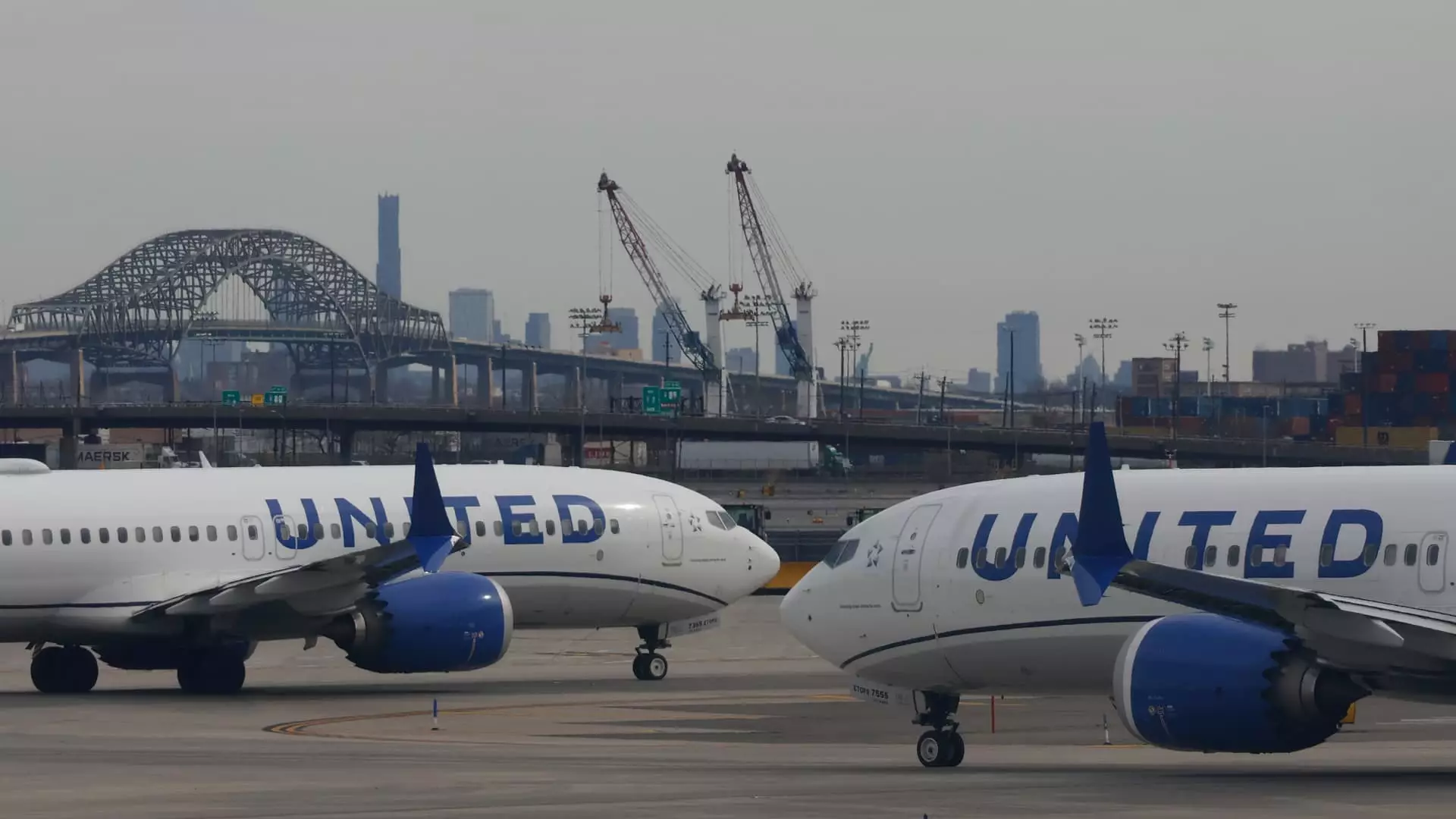Recent announcements from United Airlines regarding the cancellation of 35 roundtrip flights daily from Newark Liberty International Airport have unveiled the depths of an ongoing crisis within both the airline industry and the federal aviation system. The consequences are much more than mere cancellations—they symbolize the systemic failures compromising our air travel experience. CEO Scott Kirby’s statements point to air traffic controller staffing shortages and the Federal Aviation Administration’s (FAA) technological inadequacies as central issues. However, while blame is directed outward, it is critical to ask: Who bears responsibility for this predicament?
The need to cancel 35 flights represents approximately 10% of United’s operations at one of America’s busiest airports. The chaos surrounding Newark this past week, with over 300 flight delays reported, signals more than a momentary lapse. This crisis reveals fundamental flaws in how we manage our air traffic, exposing a fragile system on the brink of failure. The very fact that Kirby attributes the situation to years of chronic understaffing within the Newark air traffic control facility should ring alarm bells.
Leadership Responsibility: A Call for Accountability
It seems that in moments of chaos, the instinct to point fingers overrides the need for introspection. Kirby’s acknowledgment of systemic understaffing raises questions about United Airlines’ oversight in its operational judgment. How did they let things reach this point? The public deserves transparency from airlines that continue to operate amid evident failures. This isn’t merely about air traffic controllers walking off the job; it’s about a culture that dismisses employee welfare until crises emerge.
While external factors certainly contributed to this turmoil—such as environmental conditions and technology failures—the airline industry must prioritize the human resources crucial for safe and efficient operations. United brags about its fleet size and market reach, yet fails to ensure that enough trained personnel are available to navigate our crowded skies. This negligence begs the question: Are passengers simply part of a profit-driven equation that neglects their needs?
FAA’s Role: A System in Need of Overhaul
On the other side of the equation, the FAA’s struggling infrastructure and antiquated technology tools are no secret. Transportation Secretary Sean Duffy’s comments about the unacceptable equipment outages come alarmingly late to the conversation, leading to skepticism about the government’s commitment to address the crisis adequately. The foundation of safety in the aviation system should always be built on modern technology and knowledgeable staffing, yet we are still navigating an overwhelmed system that appears to lack urgency.
Duffy’s call for a complete overhaul of the air traffic control system is a vital acknowledgment. Yet, how many times have we heard similar sentiments echoed without tangible action? The industry’s loyal passengers are understandably frustrated, not just at cancellations but at the clear lack of a proactive strategy for improvement. It is short-sighted to think that putting a band-aid on the problem will remedy a fundamentally flawed system.
Passengers at the Mercy of Inadequate Solutions
As cancellations increase, the aviation industry’s attempts to address customer dissatisfaction seem piecemeal and reactive. United has offered to waive change fees and fare differences for stranded travelers, which may soothe some injured feelings but does little to address the systemic failure at play. This reactive measure raises deeper concerns about passenger rights in the age of air travel. Shouldn’t there be a guarantee of reliable service, rather than a kind offer to rectify a failure?
As we navigate through this turbulence, it’s evident that larger issues need resolution. The complexities of flying are not just technical; they are human. The airline and the federal agency must cultivate a relationship that reflects accountability and foresight. Governor Murphy of New Jersey once noted that air travel is a lifeline for the economy, and if that lifeline is compromised, what does that say about our priorities?
Ultimately, Newark’s current plight poses critical questions for airlines, regulators, and travelers. Do we wish to continue being subjected to a failing operation, or will we demand and support substantial reforms that prioritize both an efficient and safe travel experience? In a globalized world, the distance between cities can feel minuscule. Yet, without the means to manage our airspace effectively, those connections risk becoming severed.

